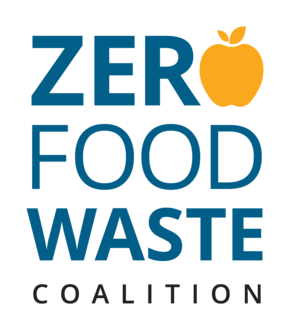
Accelerating Policy Action on Food Waste: Introducing the Zero Food Waste Coalition
- Date: 26 April 2023
At least 35% of all food in the US is left behind in fields or goes to waste, while millions of Americans face food insecurity. Businesses, government agencies, funders, and many others are already taking huge strides to address this challenge. But a patchwork of initiatives, no matter how impressive or innovative, will never be enough to make the rapid and dramatic reductions in food waste required to sustain ourselves and our planet. We cannot solve this problem without ambitious leadership and action on the federal level and across all 50 states. This is where the Zero Food Waste Coalition comes in.

In January of 2020, NRDC, WWF, Harvard Food Law Policy Clinic, and ReFED launched an informal coalition to engage with and inform policymakers on opportunities to prevent and reduce food loss and waste. Together, we developed and launched the US Food Waste Action Plan, now endorsed by over 60 businesses, nonprofits, and local governments. During this effort, we realized the complementary strengths of our organizations and see a critical opportunity to further advance responsible and ambitious food waste policy.
The Zero Food Waste Coalition formalizes the partnership of our four organizations to continue building momentum and aligning on food waste policy, amplifying as a collective voice beyond what we could do alone.
WWF is excited to work through this coalition and its supporters to identify and build momentum for common sense food waste policies that will keep food out of landfills, develop new markets for surplus, and educate youth and consumers on the ways we can all do more to stop wasting food. We cannot develop a regenerative or circular food system without addressing food loss and waste. There is growing consensus across party lines and the food industry that these policies will help save consumers and businesses money, feed hungry people, and create a more resilient food system.
Our first act as a formal coalition is to lay out priorities for the 2023 Farm Bill. This multi-year legislative package could be one of the most important tools we have to combat food waste—if we do it right. Our priorities include provisions to support food waste research and food waste reduction infrastructure, help implement proven state and local policies that prevent wasted food, and establish and clarify food date labels. You can find the full priorities document here.
A major goal of the coalition is to eliminate food and organic waste from landfills in all 50 states, and landfill bans are one mechanism for accomplishing this. It’s up to each state to figure out how they want to invest in technology and processes to stop organic waste from ending up in landfills.
The Zero Food Waste Coalition aims to keep things simple and nimble. We will focus on influencing policy at the local, state, and federal levels and sharing policy updates and opportunities with partners and stakeholders around the country. Ultimately, the Zero Food Waste Coalition will bring consumers, businesses, and government together to make food loss and waste history. To learn how you can join us, visit ZeroFoodWasteCoalition.org.